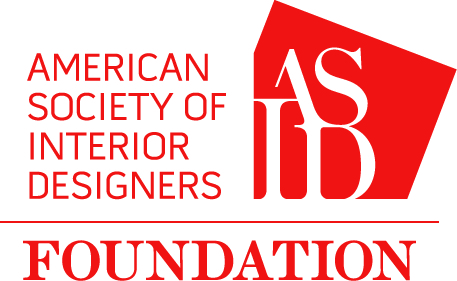
Designing for a New Millennial Culture
- Registration Closed
Explore how the design of mixed-use learning environments fosters informal interactions in higher education and contributes to building community.
Continuing Education Approvals
- 1 IDCEC CEU | CC-107930 (Your CEU will be reported to IDCEC on your behalf.)
Supported by

Description
Today, knowledge is ubiquitous, and university administrators are rethinking their facilities to adapt to a generation of students who expect a less didactic and non-hierarchical learning experience. Millennials’ expectations have drastically changed the way we need to think about education and space. Educators and interior designers aspiring to build interconnected learning communities face the challenges of rampant technological and social evolution as they work to bridge generational divides. The mixed-use learning environment is a design solution intended to foster informal interactions in higher education, sparking interactions between students and faculty while helping foster a sense of community. This course presents an overview and findings from a study conducted by the University of Florida’s Engage Design Lab, funded by an ASID Foundation Transform Grant.
What You Will Learn
- Describe the role of mixed-use learning environments in higher education settings
- Identify the types of learning environments preferred by millennial college students
- Explain the methodologies utilized in the research study
- List each of the 4 typologies of mixed-used learning environments identified in the study
Access period: One year from registration date.

Margaret Portillo, PhD, FIDEC
Associate Dean of Research + Strategic Planning, University of Florida
As Associate Dean of the University of Florida College of Design, Margaret “Meg” Portillo works to support high impact research in interior design, architecture, landscape architecture, planning, and construction management: All allied fields found within the College of Design, Construction and Planning at the University of Florida. Outside UF, Meg is active in service to the profession. For example, she has been Editor-in-Chief of the Journal of Interior Design, publishing scholarship from around the world. Committed to the wider design community, Meg helped lead the CIDA 2017 standards development project, resulting in a new generation of quality educational standards for interior design graduates entering the field.

Sheila Bosch
Assistant Professor, University of Florida
Assistant Professor in the University of Florida’s College of Design, Construction and Planning (DCP), Department of Interior Design, with a research focus on human-centered design of healthcare and learning environments. As a thought leader in the field of evidence-based design, Sheila regularly speaks at national conferences and has authored numerous peer-reviewed and non-peer-reviewed publications. She also serves as an ad-hoc reviewer for several peer-reviewed publications. Having earned my PhD in 2004 from Georgia Tech’s College of Architecture, Sheila also holds an MS (life science, environmental toxicology) and a BS (science education) from the University of Tennessee.

Jason Meneely
Associate Professor, University of Florida
Professor Meneely is an associate professor in the Department of Interior Design at the University of Florida. He joined the department in 2006 from Cornell University where he worked as a researcher in the department of Design and Environmental Analysis. Meneely’s work explores strategies for enhancing creativity in individuals, teams, and organizations by investigating the collision of cognitive, social, and environmental factors. He also explores the use of technology and physical space to support active learning and is responsible for the design of numerous technology-infused collaborative learning environments on UF’s campus. In 2012 Meneely received a national Innovation in Education Award from the Council of Interior Design Accreditation (CIDA) for developing innovative approaches that blend technology with free-hand drawing, real-time critique, and collaborative teamwork.

Elizabeth Calienes
Graduate Student (PhD Candidate), University of Florida
Elizabeth is pursuing a PhD at the University of Florida’s College of Design, Construction and Planning. Her research focuses on the millennial generation and how they relate to the retail environment. In 2016, she was awarded the JID Graduate Research Award at the national IDEC Conference. She is spearheading the Engage Design Lab, a research initiative in the Department of Interior Design focused on translational mixed methods research in education and healthcare.
Prior to completing her MID at UF in 2015, she worked in advertising, shopper marketing, magazine publishing, graphic design and production design for film. Her design and film work has been recognized internationally.

This CEU is registered with the International Design Continuing Education Council (IDCEC) for continuing education credits. This credit will be accepted by the American Society of Interior Designers (ASID), International Interior Designers Association (IIDA) and Interior Designers of Canada (IDC).
The content included is not deemed or construed to be an approval or endorsement by IDCEC of any material or construction or any method or manner of handling, using distributing or dealing in any material or product.
Questions related to specific materials, methods and services should be directed to the instructor and provider of the CEU.
This program is registered for 1 CEU value. The IDCEC class-code is: CC-107930R2.
